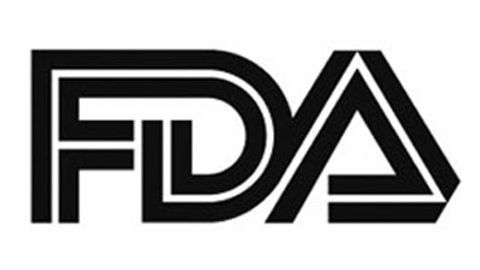ODAC Votes to Continue Approval of Pembrolizumab For Locally Advanced or Metastatic UC
The FDA’s Oncologic Drugs Advisory Committee voted 5 to 3 in favor of continued approval of pembrolizumab for the treatment of patients with locally advanced or metastatic urothelial carcinoma who are ineligible for cisplatin-containing chemotherapy.

The FDA’s Oncologic Drugs Advisory Committee (ODAC) voted 5 to 3 in favor of continued approval of pembrolizumab (Keytruda) for the treatment of patients with locally advanced or metastatic urothelial carcinoma who are ineligible for cisplatin-containing chemotherapy.1
“The patients that fit the accelerated approval label have few options which include best supportive care, palliative endoscopic resection, radiation, and systemic treatments that include gemcitabine and carboplatin in combination or mono therapy with a cytotoxic agent such as gemcitabine, and more recently [we] can consider pembrolizumab in patients who are platinum ineligible or for those who are PD-L1-positive and have significant disease related symptoms and/or medical comorbid conditions that wouldn’t meet inclusion criteria for the trial cohorts,” said Christopher J. Hoimes, DO, instructor, Department of Medince, Duke Cancer Institute.
Accelerated approval was granted based on the results of the KEYNOTE-052 study (NCT02335424), which found pembrolizumab demonstrated anti-tumor activity in patients with urothelial cancer who are cisplatin-ineligible.
The trial enrolled 374 patients. The primary outcome of the study included objective response rate. Secondary outcomes included duration of response (DOR), progression-free survival (PFS), overall survival (OS), and the number of participants who experienced at least one adverse event (AE). In the 1-armed study, patients received 200 mg of pembrolizumab intravenously on day 1 of each 3-week cycle for up to 24 months.
Of the 374 patients enrolled, 370 had received at least one dose of pembrolizumab. Of those patients, 28.6% had a centrally assessed objective response. At the time of data cutoff in September of 2016, 67% of those responses were ongoing. The median follow-up time was 5 months. Additionally, a PD-L1 expression cutoff of 10% was associated with a higher frequency of response to pembrolizumab. The most common grade 3 or 4 AEs were fatigue, alkaline phosphate increase, colitis, and muscle weakness.1
However, benefit of pembrolizumab was not confirmed during the KEYNOTE-361 trial (NCT02853305). Additionally, the treatment landscape has been changed in terms of OS benefit from avelumab, an alternative checkpoint inhibitor in the maintenance setting. There are also continuing issues surrounding alternative confirmatory trials.
In order to participate, patients were required to be 18 years old or older, histologically or cytologically confirmed diagnosis of advanced/unresectable or metastatic urothelial cancer of the renal pelvis, ureter, bladder, or urethra and are ineligible for cisplatin therapy. Patients also must have no prior systemic chemotherapy for metastatic disease. Patients with a disease that is sustainable for local therapy administered with curative intent or prior anti-cancer monoclonal antibody exposure are not eligible to participate.
“I am anxious about a time where we may again be faced without a systemic therapy option for this niche of a disease state, because these patients simply couldn't be captured on a trial to understand the true performance and benefit. In this challenging disease setting, I ask that the ODAC and FDA recognize that pembrolizumab, in fact, has activity in these patients where there remains a high unmet need in a population of patients who are vulnerable with significant disease-related symptom burden and comorbid conditions. On behalf of my patients, caregivers and similar patients around our country and territories, I ask that ODAC and the FDA maintain pembrolizumab in this setting, as an option for our patients,” Hoimes said.
REFERENCE:
April 27-29, 2021: Meeting of the Oncologic Drugs Advisory Committee Meeting Announcement. FDA website. Accessed April 28, 2021.
Balar A, Castellano D, O’Donnell P, et al. First-line pembrolizumab in cisplatin-ineligible patients with locally advanced and unresectable or metastatic urothelial cancer (KEYNOTE-052): a multicentre, single-arm, phase 2 study. Lancet Oncol. 2017;18(11): P1483-1492. doi: https://doi.org/10.1016/S1470-2045(17)30616-2
Responders to UGN-101 Have Positive RFS in Upper Tract Urothelial Cancer
May 5th 2024In patients at 15 centers who had upper tract urothelial cancer, those with no evidence of disease after UGN-101 induction had a 68% rate of 3-year recurrence-free survival, and this outcome did not differ based on tumor status, method of instillation, or treatment intent.
Read More
UGN-101 Shows Promise for Upper Tract Urothelial Cancer Durability
May 5th 2024Maintenance UGN-101 therapy demonstrated good durability of response in initial responders with low-grade upper tract urothelial cancer, as evidenced by a low rate of disease progression in a multicenter, longitudinal follow-up study.
Read More
Nivolumab With Gemcitabine-Cisplatin Boosts Survival in Metastatic Urothelial Carcinoma
May 5th 2024Combination therapy with nivolumab and gemcitabine-cisplatin showed promising results in treating metastatic urothelial carcinoma with significantly improved overall survival and progression-free survival rates.
Read More